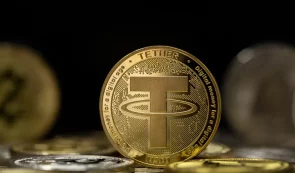Where Should You Keep Your Money: Stablecoins or Cash?

In an ever-evolving financial landscape, the way we store and manage our money has seen significant changes. Traditional cash, once considered the most reliable means of exchange, is now facing competition from digital alternatives like stablecoins.
As the popularity of stablecoins rises, individuals must weigh the advantages and disadvantages of keeping their funds in stablecoins versus holding onto cash.
In this article, we will explore the characteristics of stablecoins and cash and the factors that can influence the decision-making process to help you make an informed choice that aligns with your financial goals and risk tolerance.
Understanding Stablecoins
Stablecoins are digital currencies designed to maintain price stability by being pegged to a stable asset, such as a fiat currency like the US Dollar or a commodity like gold.
This pegging mechanism aims to reduce the volatility that is commonly associated with other cryptocurrencies like Bitcoin and Ethereum. By providing a more stable value, stablecoins offer users a sense of security and predictability in their transactions and investments.
One of the primary benefits of stablecoins is their ability to facilitate fast and low-cost cross-border transactions. Traditional bank transfers can take several days, incurring hefty fees along the way. In contrast, stablecoin transactions are often processed within minutes, allowing for swift and efficient global transfers.
The Power of Cash
Cash has been the backbone of economies for centuries as the most traditional form of money. Physical cash, in the form of banknotes and coins, is universally accepted and easy to use for everyday transactions. Furthermore, cash enjoys the backing of governments and central banks, which instills confidence in its stability.
READ MORE: Stablecoin Showdown: Tether Emerges Victorious in Court
Another advantage of cash is its wide acceptance in various regions, even in areas with limited access to technology or internet connectivity. Cash is tangible and easily accessible, making it the go-to option for small and peer-to-peer transactions.
However, cash does have its drawbacks. Holding large sums of cash for prolonged periods can lead to a loss of value due to inflation. Unlike stablecoins, which may appreciate in value if their pegged asset increases in worth, cash tends to depreciate over time, eroding purchasing power.
Factors to Consider When Choosing
The decision to keep money in stablecoins or cash hinges on several factors, including financial goals, risk tolerance, and the purpose of the funds.
Financial Goals
If your aim is to protect the value of your money while having quick access for transactions or remittances, stablecoins might be a suitable choice. On the other hand, if you are looking for a store of value with minimal risk and government backing, cash might be the better option.
Risk Tolerance
Stablecoins, being digital assets, come with inherent risks. While they aim to maintain stability, there’s always a possibility that the peg could fail, leading to value fluctuations. Cash, though generally stable in the short term, can be affected by long-term inflation risks. Assessing your risk tolerance is crucial when deciding between stablecoins and cash.
Purpose of Funds
Consider the purpose of the funds you want to store. For short-term savings or international transactions, stablecoins can offer efficiency and low fees. For emergency funds or everyday expenses, easily accessible cash might be more suitable.
Security and Risks
Security is a paramount concern when it comes to storing money, regardless of whether it’s in stablecoins or cash.
Stablecoins Security
Digital wallets used to store stablecoins can be vulnerable to hacking and other cybersecurity threats. It’s essential to choose reputable wallet providers and enable additional security measures like two-factor authentication.
Cash Security
Physical cash can be prone to theft, loss, or damage. Using secure storage options like safes or depositing money in insured banks can mitigate these risks.
READ MORE: BRICS Summit: Putin’s Absence Sparks Expansion Concerns
Current Market Overview
The cryptocurrency market, including stablecoins, has experienced remarkable growth and adoption in recent years. Major players like Tether (USDT), USD Coin (USDC), and DAI have become widely used stablecoins.
Meanwhile, governments and central banks worldwide continue to explore the possibility of issuing their own digital currencies, known as Central Bank Digital Currencies (CBDCs). These developments suggest that the landscape of stablecoins and cash will continue to evolve in the future.
Conclusion
The decision of whether to keep your money in stablecoins or cash depends on various factors unique to your financial situation. Both options come with their advantages and risks, and it’s essential to evaluate your financial goals, risk tolerance, and purpose of funds before making a choice.
Stablecoins offer speed, efficiency, and relative stability in value, making them attractive for cross-border transactions and short-term savings. However, they do carry digital security risks and regulatory uncertainties.
On the other hand, cash provides physical tangibility, widespread acceptance, and government backing, ensuring confidence in its value. However, cash faces the risk of long-term value erosion due to inflation.
Ultimately, diversification might be a prudent approach. A balanced portfolio that includes a mix of stablecoins for digital transactions and cash for day-to-day expenses can help you leverage the benefits of both options while mitigating their respective risks.
Remember, this article is not financial advice, and it is essential to conduct thorough research, seek professional advice, and stay informed about the ever-changing financial landscape. Making the right financial choice requires a thoughtful and well-informed approach.













